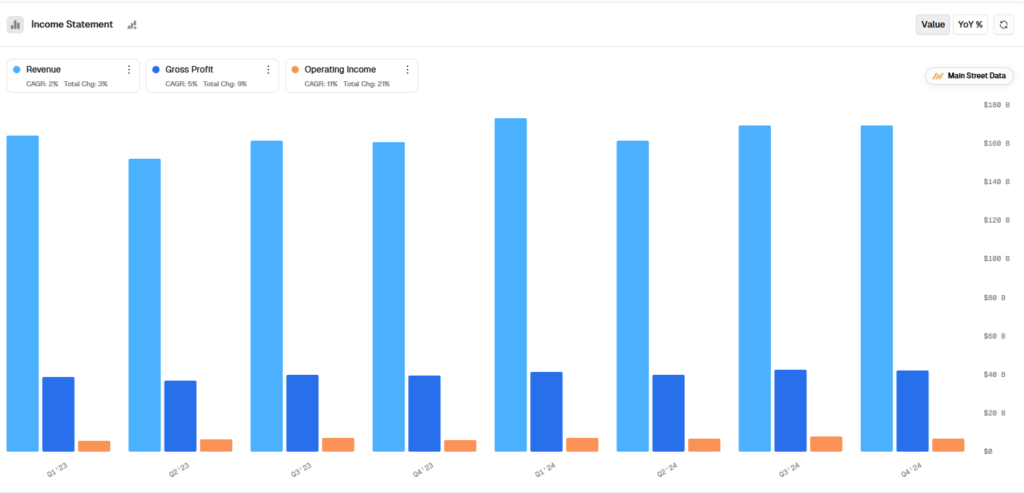Walmart (WMT) is raising prices, while other retail giants are taking notice. The world’s largest retailer said it would increase prices on a broad range of products starting in late May, citing higher costs from tariffs on Chinese and Latin American imports. The move marks a significant shift in the U.S. inflation narrative and could trigger broader price hikes across the retail sector. In the wake of this news, WMT stock hasn’t been affected too much, with a 1.96% rise on Friday and a slight decrease of 1% in pre-market trading.
Elevate Your Investing Strategy:
- Take advantage of TipRanks Premium at 50% off! Unlock powerful investing tools, advanced data, and expert analyst insights to help you invest with confidence.
Walmart CFO John David Rainey called the price pressure “unprecedented,” adding that the company can no longer absorb all tariff-related costs even with strong sales growth. General merchandise, particularly electronics, toys, and some imported foods, will be the first categories to rise. Walmart says food prices will be spared for now.

Trump Response: ‘Eat the Tariffs’
President Trump swiftly rebuked the announcement, urging Walmart to “eat the tariffs” instead of blaming government policy for higher prices. “Walmart made billions last year… They should not charge valued customers ANYTHING,” he posted. The company responded that its retail margins are too thin to absorb such broad-based cost increases, despite its overall profitability.
For investors, the real question is: Will Walmart’s move ripple across the sector? Analysts say yes.
“If Walmart is doing it, everyone else probably will too,” said UBS economist Alan Detmeister, who now expects U.S. inflation to rise to 3.3% over the next year. Harvard economist Jason Furman echoed the sentiment, emphasizing that Walmart’s transparency reflects real pressure, not opportunism.
Retailers like Ford (F) and On Holding (ONON) have also signaled upcoming price increases. Ford plans to raise sticker prices on select models by up to $2,000, while On Holding will hike U.S. prices in July.

Competitors Could Follow Suit
From a competitive standpoint, Walmart’s decision may give rivals like Target (TGT), Costco (COST), and Amazon (AMZN) room to raise prices without losing market share. However, companies more reliant on imports may be forced to raise prices even more aggressively.
Walmart shares rose 1.96% on the news, reflecting investor confidence in its pricing power and defensive positioning. However, as inflation expectations rise – both among consumers and manufacturers – pressure may build on the Federal Reserve and margins across the board.
In conclusion, Walmart’s hikes could mark the start of a broader inflation wave. Investors should watch competitors’ pricing actions closely and reassess inflation-sensitive positions in the retail and consumer sectors.
Is Walmart a Buy, Sell, or Hold?
As stated earlier, the Street’s analysts feel bullish about the company’s pricing power. The stock boasts a Strong Buy rating, with an average WMT stock price target of $109.27. This implies an 11.23% upside.

















